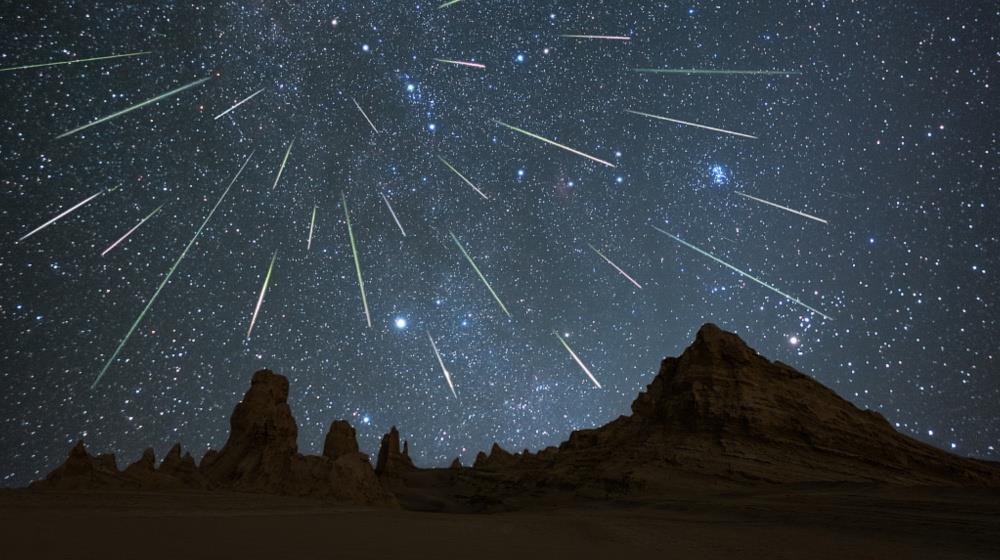The Perseid meteor shower (also known as the Perseids) will peak this year around the night of 12 August and before the dawn on 13 August, according to the science site Royal Museums Greenwich, so keep an eye out for those shooting stars.
2023 will be a good year for the Perseids as the moon will only be 10% illuminated.
The Perseids are caused by Earth passing through debris — bits of ice and rock — left behind by Comet Swift-Tuttle, which last passed close to Earth in 1992.
The Perseids peak when Earth passes through the densest and dustiest area on 11-12 August. Years without moonlight see higher rates of meteors per hour, and in outburst years (such as in 2016) the rate can be between 150-200 meteors an hour.
On average, you can expect to see up to 100 meteors – or shooting stars – per hour during the Perseid's peak, according to NASA.
In 2022, the Perseids were affected by the full moon illuminating the sky and washing out fainter meteors. However, this year the moon will provide minimal disturbance to the meteor shower as it will only be 10% illuminated during the time of the peak.
The Perseid meteor shower is caused by the comet Swift-Tuttle. Swift-Tuttle was discovered independently by two astronomers, Lewis Swift and Horace Tuttle, in 1862. When it last made a pass by Earth in 1992, it was too faint to be seen with the naked eye.
Comet Swift-Tuttle is the largest object known to repeatedly pass by Earth; its nucleus is about 26 kilometres wide. It last passed near Earth during its orbit around the sun in 1992, and the next time will be in 2126.
When you sit back to watch a meteor shower, you're actually seeing the pieces of comet debris heat up as they enter the atmosphere and burn up in a bright burst of light, streaking a vivid path across the sky as they travel at 59 kilometres per second, according to NASA.
To best see the Perseids, go to the darkest possible location and lean back and relax. You don't need any telescopes or binoculars as the secret is to take in as much sky as possible and allow about 30 minutes for your eyes to adjust to the dark.









